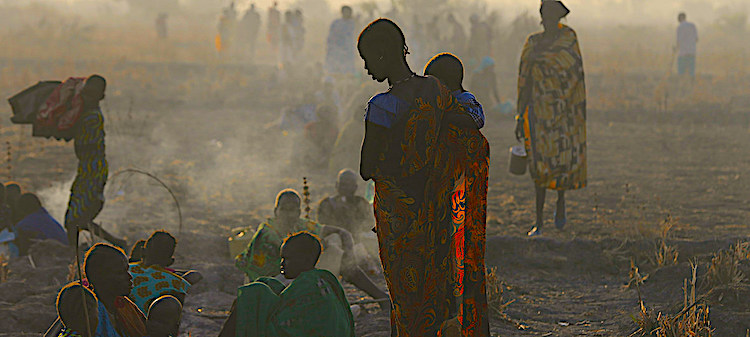By Lisa Vives, Global Information Network
NEW YORK (IDN) – Instability is growing in the East African nations of Sudan and South Sudan while the U.S. pursues a military solution to a decades-long civil war in Somalia. Recent U.S. bombing raids are claiming 35 al-Shabab victims in the Hiraan region of central Somalia, the U.S. military’s Africa Command reports.
Such airstrikes in Somalia are typically carried out by armed drones. This is the 12th American drone strike on Somalia this month, according to Halgan Media, a Somali online news wire.
The Pentagon has increased the rate of strikes in Somalia after President Donald Trump loosened constraints on when the U.S. military can take action against alleged terrorists.
Drones may not yet be the weapons of choice in Sudan, but President Omar al-Bashir has pulled out all the stops to end public gatherings and protests in a series of emergency decrees. The Sudanese leader faces the most sustained anti-government street unrest of his 30-year rule.
Hundreds of demonstrators have been taking to the streets in the capital, Khartoum, despite riot police firing tear gas and stun grenades at crowds.
“We are challenging the regime and we are not scared of the state of emergency,” protester Erij, who gave only her first name for security reasons, told Aljazeera news service.
“We have only one aim and that is to make the president step down.”
Riot police also fired tear gas into the compound of Ahfad University for Women after students there staged a sit-in.
Officials say 31 people have died in protest-related violence since then, while Human Rights Watch has put the death toll at 51.
Meanwhile, a crisis of almost unimaginable proportions devastates Africa’s newest independent nation of South Sudan despite a peace deal signed by the warring parties last year. The latest UN report on South Sudan offeres an almost endless litany of human rights abuses, its 200-plus pages make for the most dismal reading, the UK Guardian reports.
“There is a confirmed pattern of how combatants attack villages, plunder homes, take women as sexual slaves and then set homes alight – often with people in them,” Yasmin Sooka, Chair of the Commission on Human Rights in South Sudan said in Nairobi at the launch of the three-member expert-body’s third report.
“Rapes, gang rapes, sexual mutilation, abductions and sexual slavery, as well as killings, have become commonplace in South Sudan,” she continued. “There is no doubt that these crimes are persistent because impunity is so entrenched that every kind of norm is broken.”
While a lack of accountability during the country’s struggle for independence has helped to fuel the current conflict, the report stresses that sustainable peace requires tangible and credible accountability and justice.
“We do acknowledge the efforts of the Government to hold some perpetrators accountable for gross violations of human rights and serious violations of international humanitarian law,” Commissioner Andrew Clapham said in Geneva.
“However, we also have to note that pervasive impunity remains the norm.”
The Commission, set up in 2016 by the UN Human Rights Council, urged the Government, the region and the international community to “take urgent steps” to respect the cessation of hostilities, implement the Revitalized Agreement signed five months ago and “push to silence the guns completely.”
South Sudan, the world’s youngest nation, has been mired in instability and conflict for nearly all seven years of its existence.
Earlier in 2018, President Salva Kiir and his former Vice-President and long-time political rival, Riek Machar, signed a new peace accord, and hopes have been high that the deal would finally end the crisis and deliver better and safer conditions for millions that have been left homeless and hungry.
The UN report, optimistically, represents the first step in a process that may culminate with war crimes prosecutions. The commission announced it would continue to build on its findings. [IDN-InDepthNews – 26 February 2019]
Photo: Families wait in the early hours of the morning to be registered prior to a food distribution carried out by the United Nations World Food Programme (WFP) and partner agencies, in Thonyor, Leer county, South Sudan. Credit: UNICEF | UN | Modola


